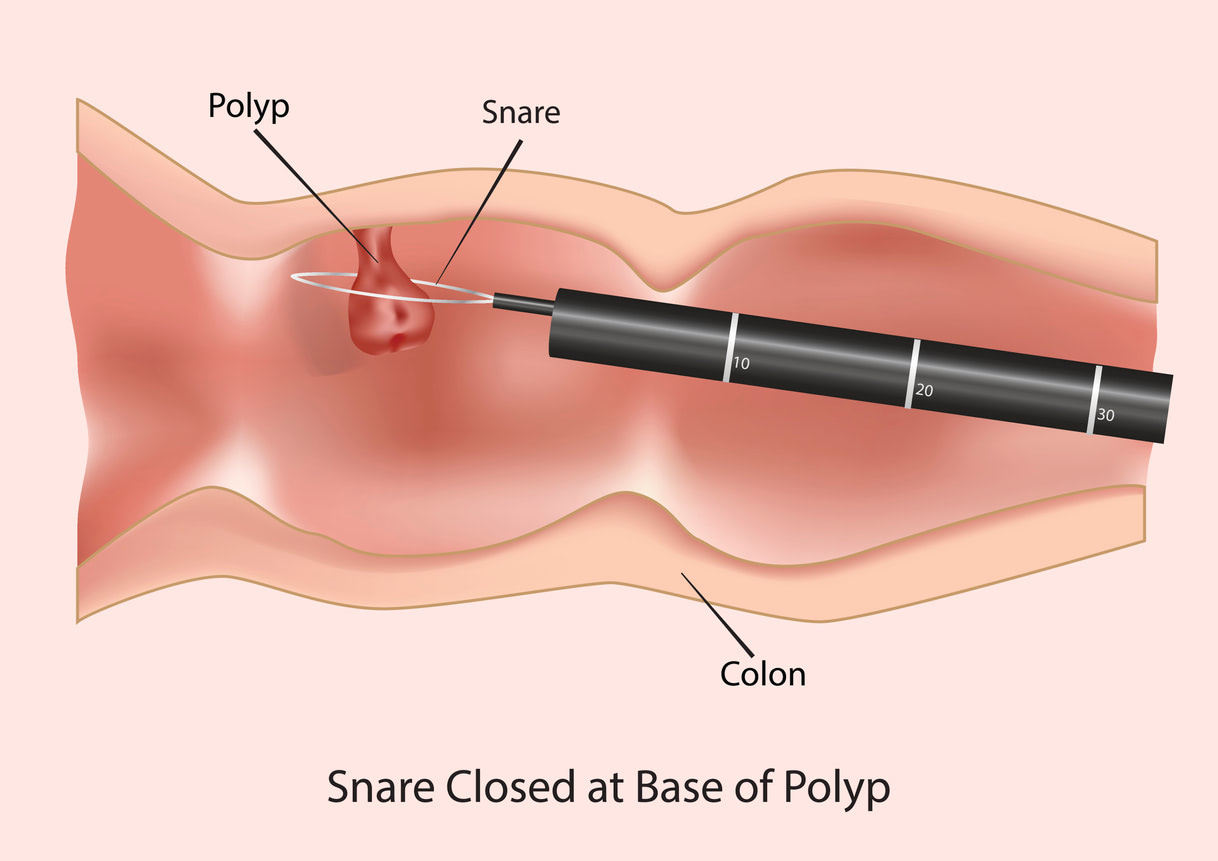
If you're over the age of 45, one of the most important things you can do to stay healthy is to schedule a colonoscopy. Colon cancer screenings are an important way to detect any potential problems with your colon early on before they have a chance to become worse. Here at GI Associates, we can help you schedule and prepare for your screening so that you can rest assured knowing that everything is taken care of. Contact us today to learn more!
What is colon cancer, and what are the symptoms of the disease?
Colon cancer is a type of cancer that starts in the colon. The colon is the large intestine or the lower part of the digestive system. Colon cancer happens when healthy cells in the colon change and grow out of control.
Most colon cancers start as small, non-cancerous (benign) tumors called polyps. Over time, some of these polyps can become colon cancers. Colon cancer usually develops slowly over several years. More than 95% of colon cancers are found in people who are 50 years or older. The average age of people diagnosed with colon cancer is about 66 years old.
There are a number of symptoms associated with colon cancer. These can include blood in the stool, changes in bowel habits (such as diarrhea or constipation), abdominal pain, unexplained weight loss, and fatigue. However, it is important to note that many of these symptoms can also be caused by other conditions. As such, it is important to see a doctor if you are experiencing any of these symptoms so that they can be properly investigated.
Colon cancer is a serious disease, but it is also one that is highly treatable if it is caught early. Therefore, it is important to be aware of the symptoms of colon cancer and to see a doctor if you are experiencing any of them.
Why are colon cancer screenings important, and who should get screened for the disease?
Colon cancer is the third most common cancer in the United States, and it is one of the most preventable forms of the disease. Colon cancer typically develops slowly over the course of several years, and it can often be detected early through screenings. Screenings involve a simple test that looks for abnormal growths in the colon, and they can be conducted either at a doctor's office or at a colon cancer screening center. There are two main types of colon cancer screenings: colonoscopies and stool tests. Colonoscopies are considered to be the gold standard of colon cancer screenings, as they allow doctors to directly visualize any abnormal growths in the colon. However, stool tests are also effective, and they are generally less expensive and less invasive than colonoscopies. Because colon cancer is such a preventable disease, it is recommended that all adults over the age of 50 get screened for the disease. However, those with a family history of colon cancer or other risk factors may need to begin screenings earlier.
How do GI Associates help patients with colon cancer screenings and other treatments for the disease?
At GI Associates, we are committed to providing our patients with the best possible care. Colon cancer is one of the most common types of cancer, and it is important to catch it in its early stages. That is why we offer a variety of colon cancer screenings and treatments. We offer both colonoscopies and colonography, which are two of the most effective ways to detect colon cancer. If colon cancer is detected, we offer a variety of treatment options, including surgery, radiation, and chemotherapy. We also offer clinical trials for new treatments. We believe that every patient deserves access to the best possible care, and we are dedicated to providing that care.
What are some of the risk factors for colon cancer, and how can they be minimized or avoided altogether?
There are several risk factors for colon cancer, including age, family history, personal history of certain other types of cancer, ulcerative colitis or Crohn's disease, smoking, heavy alcohol use, lack of physical activity, African-American race, and being overweight or obese. While some of these factors are beyond your control, there are lifestyle changes you can make to lower your risk of colon cancer. These include eating a healthy diet with plenty of fruits, vegetables, and whole grains; getting regular exercise; and avoiding tobacco products and excess alcohol. If you have any concerns about your colon cancer risk factors, please speak with your doctor. Early detection is key to the successful treatment of colon cancer, so be sure to get regular screenings according to your doctor's recommendations.
How has treatment for colon cancer changed over the years, and what does the future hold for patients with this disease?
Colon cancer is one of the most common cancers in the United States, and it is estimated that nearly 135,000 people will be diagnosed with the disease this year. Colon cancer occurs when abnormal cells grow in the colon or rectum, and it can be both deadly and debilitating. In the past, treatment for colon cancer typically involved surgery to remove the tumor, followed by chemotherapy and radiation. However, advances in medical technology have led to new and more effective treatments for this disease. For instance, targeted therapies are now being used to attack colon cancer cells without harming healthy tissue. In addition, immunotherapy is showing promise as a potential treatment for colon cancer. As research continues, it is likely that even more effective treatments will be developed, giving hope to those who are battling this disease.
